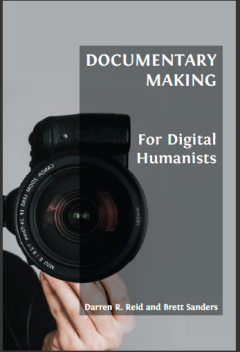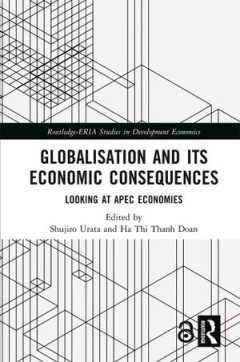Filter by

Geometry from Dynamics, Classical and Quantum
This book describes, by using elementary techniques, how some geometrical structures widely used today in many areas of physics, like symplectic, Poisson, Lagrangian, Hermitian, etc., emerge from dynamics. It is assumed that what can be accessed in actual experiences when studying a given system is just its dynamical behavior that is described by using a family of variables ("observables" of th…
- Edition
- -
- ISBN/ISSN
- 978-94-017-9219-6
- Collation
- -
- Series Title
- -
- Call Number
- 510

The State of Open Data: Histories and Horizons
It’s been ten years since open data first broke onto the global stage. Over the past decade, thousands of programmes and projects around the world have worked to open data and use it to address a myriad of social and economic challenges. Meanwhile, issues related to data rights and privacy have moved to the centre of public and political discourse. As the open data movement enters a new phase…
- Edition
- -
- ISBN/ISSN
- 9781552506127
- Collation
- -
- Series Title
- -
- Call Number
- 005.642 STA

Documentary Making for Digital Humanists
This fluent and comprehensive field guide responds to increased interest, across the humanities, in the ways in which digital technologies can disrupt and open up new research and pedagogical avenues. It is designed to help scholars and students engage with their subjects using an audio-visual grammar, and to allow readers to efficiently gain the technical and theoretical skills necessary to cr…
- Edition
- -
- ISBN/ISSN
- 9781800641976
- Collation
- -
- Series Title
- -
- Call Number
- 070 REI d

Globalisation and its Economic Consequences
Given the rising criticisms of and growing doubts about globalisation, this timely edited volume looks at globalisation and its economic impact on eight countries in Asia and the Pacific region, namely Australia, China, Indonesia, Japan, Malaysia, Thailand, the United States (US), and Vietnam. The eight selected countries are members of the Asia-Pacific Economic Cooperation (APEC) forum and yet…
- Edition
- -
- ISBN/ISSN
- -
- Collation
- -
- Series Title
- -
- Call Number
- 650

Essential Partial Differential Equations Analytical and Computational Aspects
This volume provides an introduction to the analytical and numerical aspects of partial differential equations (PDEs). It unifies an analytical and computational approach for these; the qualitative behaviour of solutions being established using classical concepts: maximum principles and energy methods. Notable inclusions are the treatment of irregularly shaped boundaries, polar coordinates and …
- Edition
- -
- ISBN/ISSN
- 978-3-319-22569-2
- Collation
- 105 b/w illustrations, 1 illustrations in colour
- Series Title
- -
- Call Number
- -

Essential Knowledge for Transistor-Level LSI Circuit Design
This book is a collection of the miscellaneous knowledge essential for transistor-level LSI circuit design, summarized as the issues that need to be considered in each design step. To design an LSI that actually functions and to be able to properly measure it, an extremely large amount of diverse, detailed knowledge is necessary. Even though one may read a textbook about an op-amp, for example,…
- Edition
- -
- ISBN/ISSN
- 978-981-10-0424-7
- Collation
- Springer Science+Business Media Singapore
- Series Title
- -
- Call Number
- -

Essential Imaging in Rheumatology
This book offers an excellent review of the various rheumatological conditions, both common and uncommon, that may present on imaging on a daily basis. The book uses a unique format that will be beneficial for clinicians, radiologists, medical students, and consultant staff. The text is written by both rheumatology and radiology staff to provide a balanced approach. A clinical overview and the …
- Edition
- -
- ISBN/ISSN
- 978-1-4939-1673-3
- Collation
- 255 b/w illustrations, 122 illustrations in colour
- Series Title
- -
- Call Number
- -

Essays on the History of Respiratory Physiology
This book consists of 23 essays about prominent people and events in the history of respiratory physiology. It provides a first-hand chronicle of the advancements made in respiratory physiology starting with Galen and the beginnings of Western physiology. The volume covers every aspect of the evolution of this important area of knowledge: pulmonary circulation, Boyle’s Law, pulmonary capillar…
- Edition
- -
- ISBN/ISSN
- 978-1-4939-2362-5
- Collation
- 115 b/w illustrations, 14 illustrations in colour
- Series Title
- -
- Call Number
- -

Essays on the History of Mechanical Engineering
This book treats several subjects from the History of Mechanism and Machine Science, and also contains an illustrative presentation of the Museum of Engines and Mechanisms of the University of Palermo, Italy, which houses a collection of various pieces of machinery from the last 150 years. The various sections deal with some eminent scientists of the past, with the history of industrial inst…
- Edition
- -
- ISBN/ISSN
- 978-3-319-22680-4
- Collation
- 142 b/w illustrations, 180 illustrations in colour
- Series Title
- -
- Call Number
- -

Essays on New Institutional Economics
This collection of essays comprises some of Rudolf Richter’s important contributions to research on New Institutional Economics (NIE). It deals with the central idea, principles, and methodology of New Institutional Economics and explores its relation to sociology and law. Other chapters examine applications of NIE to various microeconomic and macroeconomic issues in the face of uncertainty, …
- Edition
- -
- ISBN/ISSN
- 978-3-319-14154-1
- Collation
- 2 b/w illustrations
- Series Title
- -
- Call Number
- -
 Computer Science, Information & General Works
Computer Science, Information & General Works  Philosophy & Psychology
Philosophy & Psychology  Religion
Religion  Social Sciences
Social Sciences  Language
Language  Pure Science
Pure Science  Applied Sciences
Applied Sciences  Art & Recreation
Art & Recreation  Literature
Literature  History & Geography
History & Geography